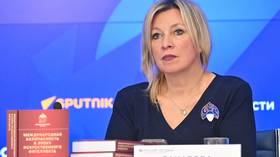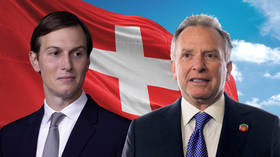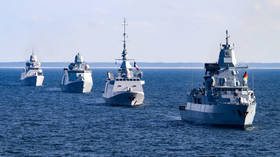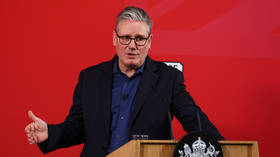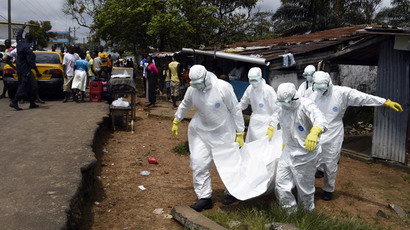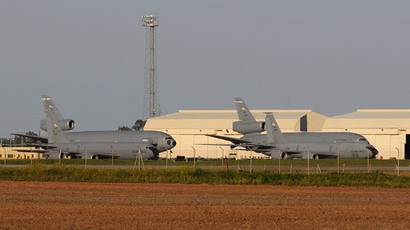Obama authorizes use of National Guard to fight Ebola in W. Africa
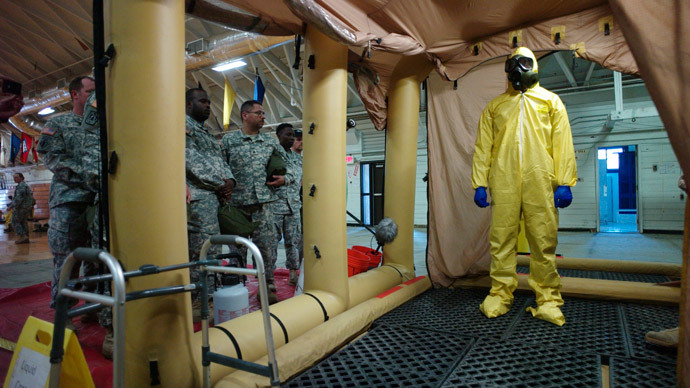
President Barack Obama authorized the Pentagon to call up members of the National Guard and other military reserve units on Thursday to help combat the spread of Ebola in West Africa.
Obama said the guardsmen would "augment the active forces in support of Operation United Assistance, providing humanitarian assistance and consequence management related to the Ebola virus disease outbreak in the West Africa region" in a letter to Speaker of the House John Boehner (R-Ohio), the Hill reported.
The Defense Department is expected to send eight engineers and logistical specialists from the Guard ‒ both active-duty and reservists ‒ during the first deployment, sources told NBC News. They are likely to help build 17 Ebola treatment centers, with 100 beds apiece.

The Guard members would join the nearly 4,000 regular troops deploying to West Africa in the coming weeks in an effort to contribute in the fight against the Ebola virus outbreak in the region, according to the Pentagon.
Obama signed the executive order Thursday afternoon, permitting the Pentagon to use the reservists and Guard troops, the Associated Press reported. The DOD said the use of an executive order was necessary to speed the deployments, and would allow the president to send additional forces as needed, according to NBC News. Obama also notified top congressional officials of his move.
Thursday evening, the president met with Health and Human Services Secretary Sylvia Burwell, US Centers for Disease Control and Prevention (CDC) Director Dr. Thomas Frieden and top White House officials in the Oval Office. He spoke to reporters afterwards, saying it might be appropriate to appoint an additional person to coordinate the response to Ebola in the United States. There have been increasing calls from the press and politicians that Obama name an “Ebola czar.”
Obama also discussed the possibility of a travel ban from the five West African countries where the outbreak began. He said that while he doesn't have a "philosophical objection" to such a ban, he has been advised against it by health experts.
“History shows that there is a likelihood of increased avoidance (that could lead to) more cases rather than less,” Obama said. “The problem is that ‒ in all the discussions that I’ve had thus far with experts in the field, experts in infectious disease… a travel ban is less effective than the measures that we are currently instituting.”
There are nearly 9,000 suspected and confirmed cases of Ebola in West Africa, according to the CDC. Almost 4,500 people have died from the virus so far. The biggest outbreak is in Liberia, where US troops will be sent to provide humanitarian assistance. Widespread transmission is also occurring in Guinea and Sierra Leone, while there has been localized transmission in Nigeria, Spain and the United States. Senegal has had a travel-associated case.
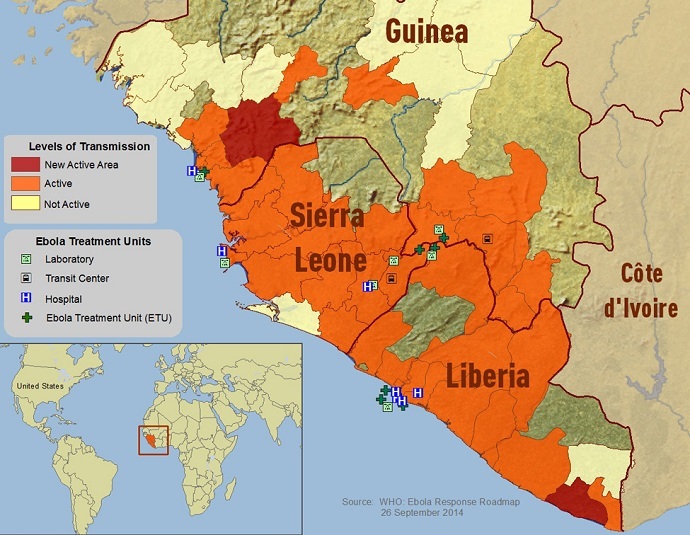
The World Bank predicted last Wednesday that the spread of Ebola presents a $33 billion threat to West African economies if the disease isn’t contained. Earlier that week, scientists predicted that there was a 75 percent chance that Ebola would reach France by the end October and a 50 percent chance for the UK.
Ebola infections in West Africa could hit 1.4 million by the end of January if current trends continue and no immediate, large-scale increase in response measures is taken, the CDC said in a September estimate.




